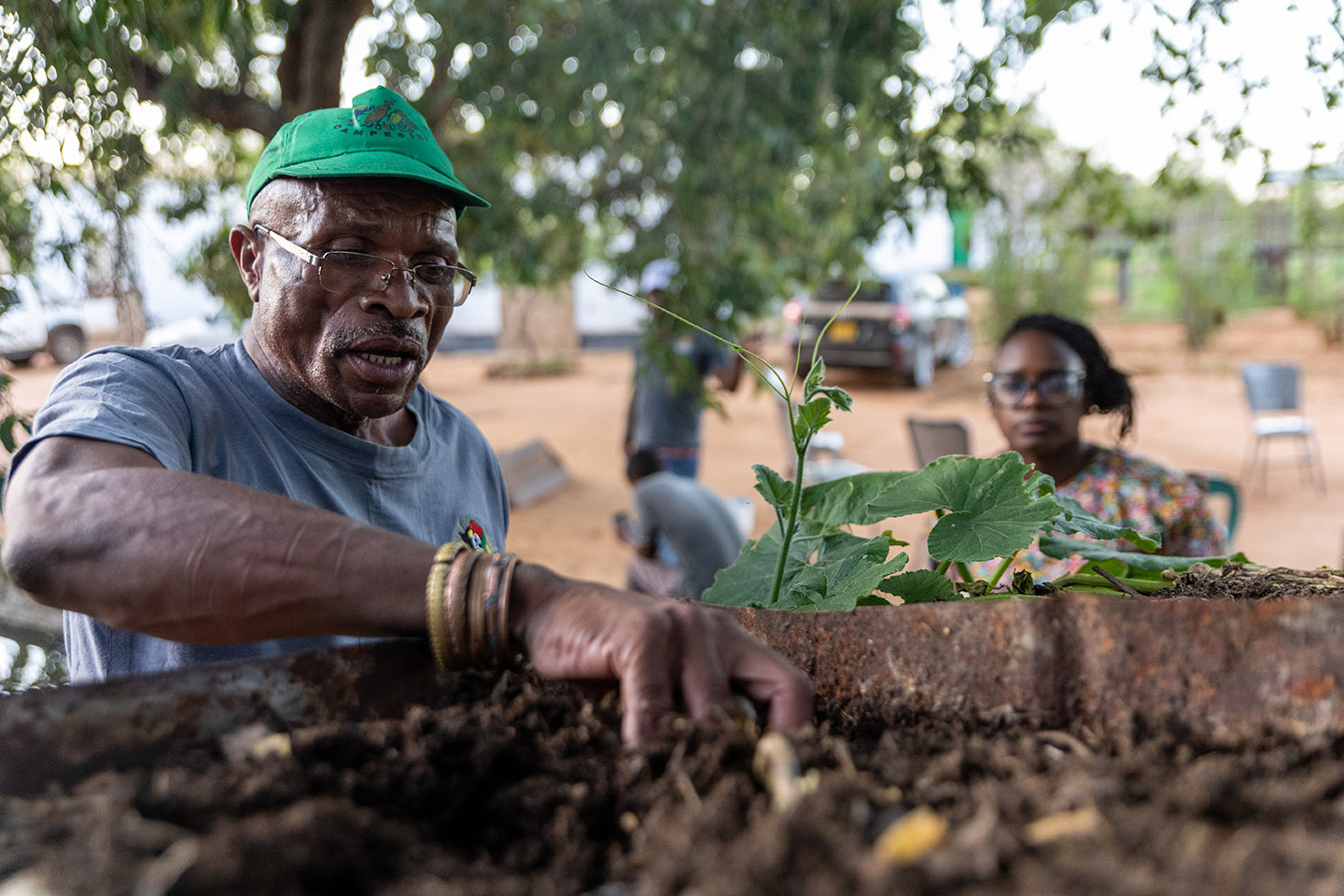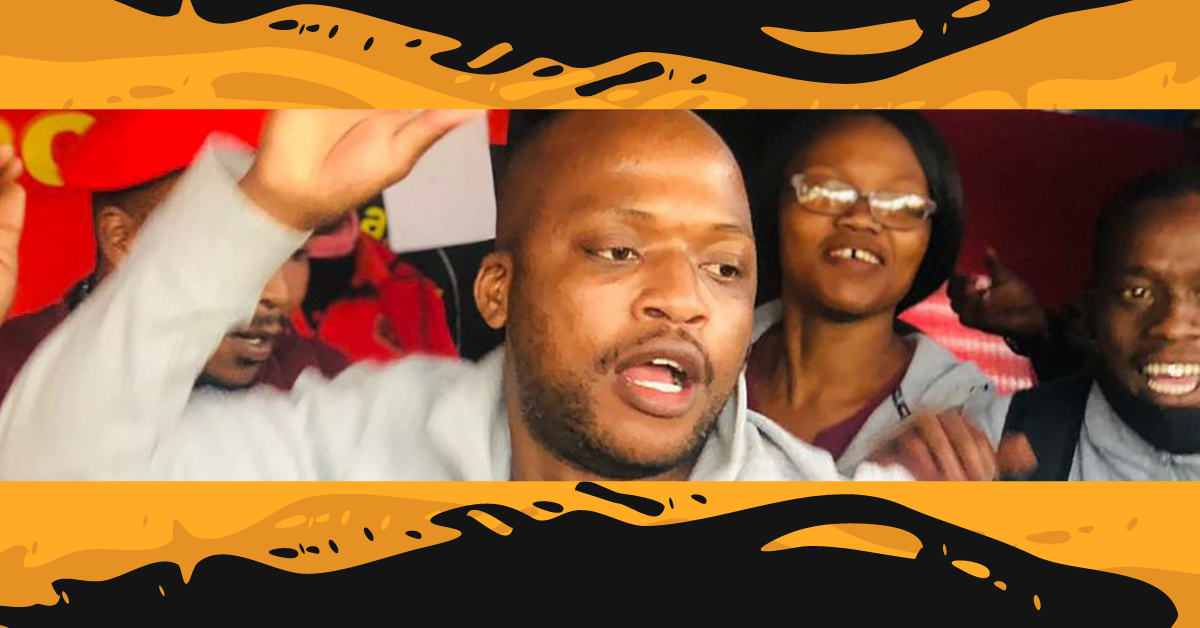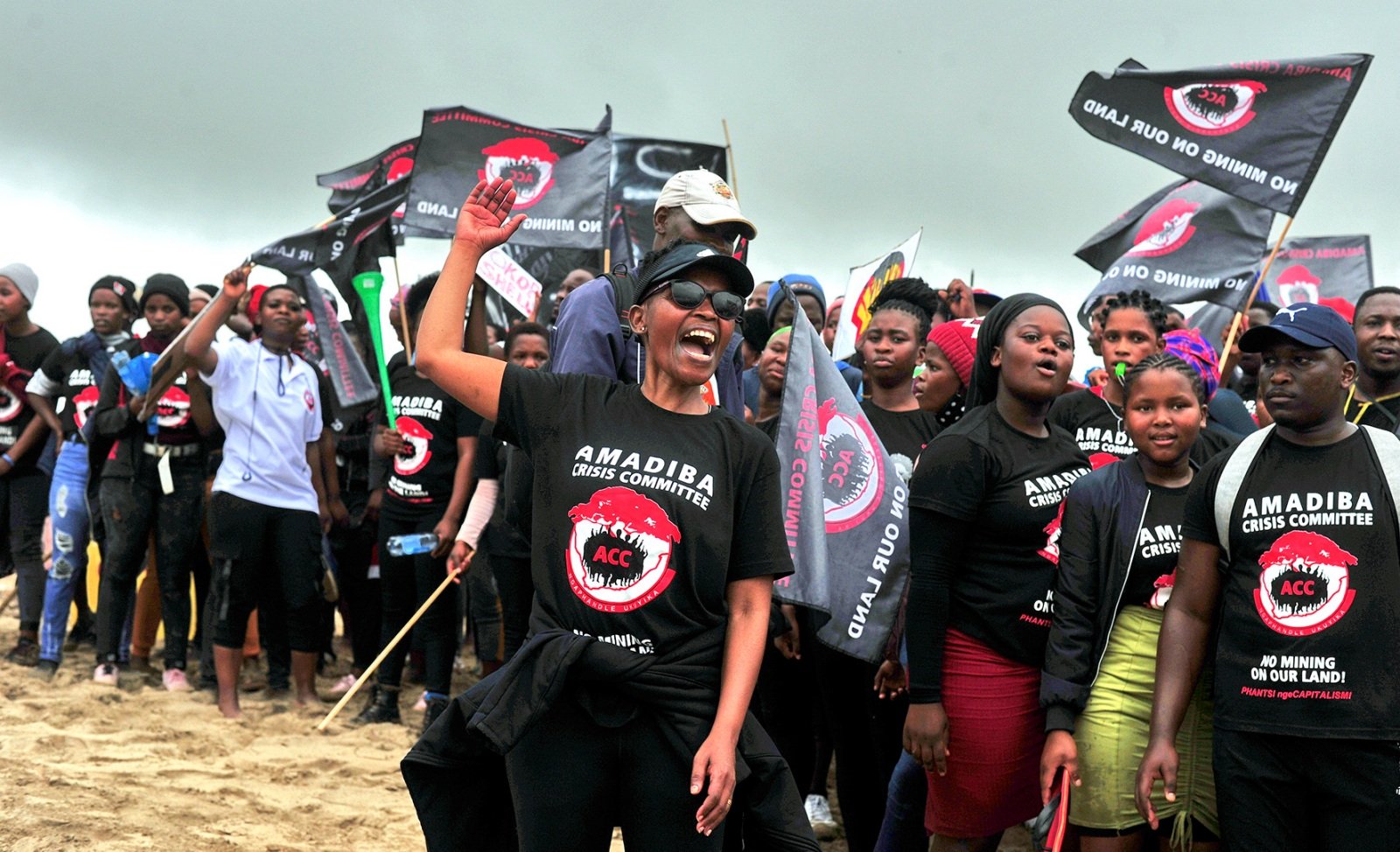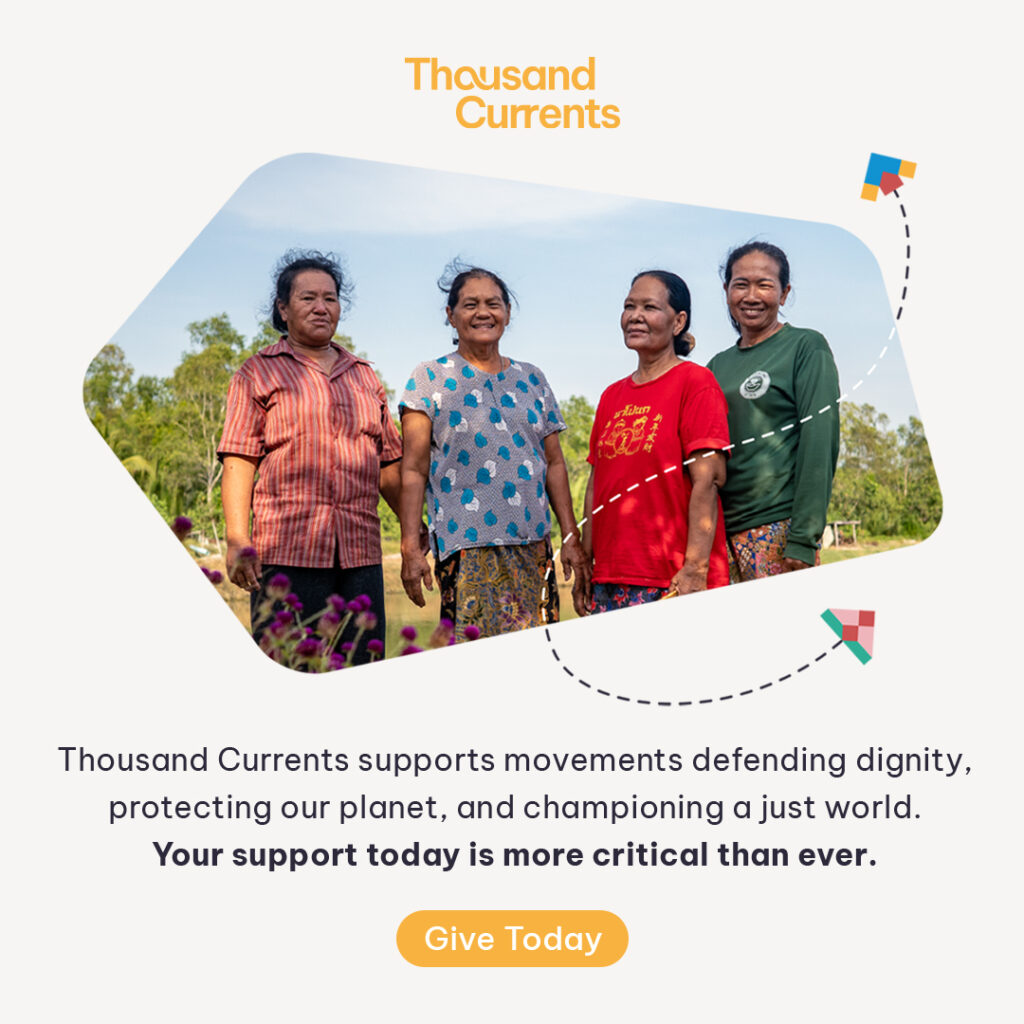When Surplus People Project decided on us
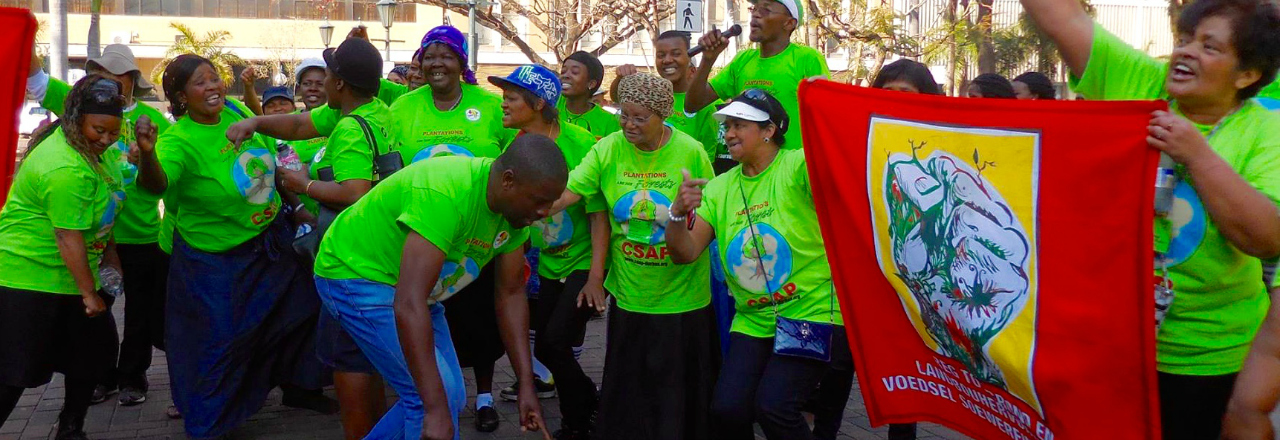
By Jennifer Lentfer, former Director of Communications
This post is based on a funders’ online dialogue series hosted earlier this year by The Whitman Institute on “trust in a time of distrust.”*
Surplus People Project (SPP) is one of the key organizations in southern Africa working on food sovereignty and economic justice for landless people. In 2011, Thousand Currents (then IDEX) was told to learn about SPP’s work in South Africa as they developed their program strategy.
Then program director Rajasvini Bhansali says that Thousand Currents approached Surplus People Project “as Thousand Currents does.” That is, with humility and with the desire to enter into a one year relationship to learn about each other. SPP had supported land and agrarian struggles of people who are poor in the Western and Northern Cape provinces since the 1980s.
“We were so sure that they would be delighted to hear from us,” says Bhansali.
And of course they were. Bhansali recounts that SPP director Herschelle Milford was extremely kind. After a long, first conversation at their offices in Cape Town, Bhansali got to the point:
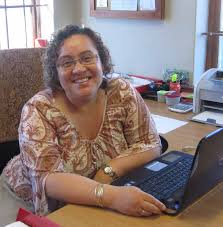
Herschelle Milford at the SPP office
“We’d love to send you a grant and we’d love to begin this relationship.”
But to Bhansali’s surprise, Milford refused.
“Oh, that’s lovely. Why don’t we wait on that a little bit?”
Bhansali explains that Milford said, “While you’ve done your desk research and homework about us, we need a little time to do our due diligence.”
As a norm, SPP doesn’t accept U.S.-based funding, having critiques of the role of USAID in landlessness issues in South Africa. The organization had also experienced the fatigue of development financing as a root cause of some of the civil society problems in South Africa.
Milford also needed to run this by SPP’s board members and steering committee.
“Why don’t we sort of ‘watch’ each other in action for awhile before we agreed to partner with you?” she offered.
Now Thousand Currents’ former executive director, Bhansali refers to this moment as “one of the most delightful lessons of my life as a funder and as a human being.” She says that it was exactly what she needed to hear to “keep me honest.”
“Sure, there was a slight pang of rejection,” she recalls. “But mostly it was the welcoming of a relationship, which over the last almost nine years has since been based on deepest form of trust and solidarity.”
“It might’ve sounded very arrogant, coming from a moral high ground,” Milford says, “but I think as Africans in particular, and the Global South, there’s been so many experiences of exploitation and oppression and power over, that it’s important that we claim the space where we can, and that we push back as far as we can.”
Milford says that SPP does this across the board, with Global North or African funders. SPP checked out Thousand Currents’ alliance partners and how they connect with global movements. SPP learned more about Thousand Currents strategies and values, and whether they were in alignment with SPP’s.
“What was different that we could learn from Thousand Currents?” they asked.
The real assessment of Thousand Currents came in the actual application process.
“The proposal in itself was the test to see the feedback,” Milford says. “How would [Thousand Currents] approach it? Did they expect us to change some of our language? Did they want us to refine some of the objectives or use log frame language?”
Milford says differences will surface as huge problems and will create more damage later if not taken seriously by grantees.
“If we cannot connect at the beginning of a partnership, this will create more damage than good down the line when funding is then cut. Ultimately there’s an impact on the organization and more importantly, on the people we work with.”
Ultimately Milford says SPP was watching how Thousand Currents communicated with them and how they “showed up.”
“How do they, outside of this legal process, connect with us? Do they invite us to their spaces and behave well in ours?”
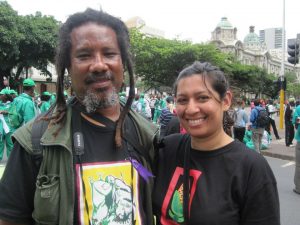 Milford remembers Katherine Zavala, the Director of Programs at Thousand Currents at the time, who was in South Africa for COP17, or the United Nations Climate Change Conference.
Milford remembers Katherine Zavala, the Director of Programs at Thousand Currents at the time, who was in South Africa for COP17, or the United Nations Climate Change Conference.
“She actually engaged with our comrades, with the people on the ground. She was here to help with the preparation for the events…You can say something, but your actions speak something very different. How you relate to us is how you ‘pass the test.’”
Bhansali shares that when Surplus People Project were good and ready and had completed their due diligence on Thousand Currents, SPP came back to them and asked to enter into a funding relationship.
“It was important for us to have a match in terms of what we value as important for our work,” says Milford. “The work that we do is…it’s tough. It’s hard, but it’s about relationship building and it’s not a transaction.”
Milford described SPP’s need to foster authentic relationships on trust, transparency, and integrity with their [funding] partners.
“We have to be truthful to ourselves and also expect the same from our partner.”
“We don’t take for granted that our invitation [to funding] is going to be accepted,” says Luam Kidane, former Vice President of Global Programs at Thousand Currents.
“In the catalyst grant phase and in the partnership phase there are many conversations around ways of working and the values that both Thousand Currents and the partner hold,” explains Kidane.
“Also, understanding our role as a funder wanting to be in solidarity with our partners, we at Thousand Currents try to ensure that we are continually asking ourselves what are the ways that our practices and values don’t align with the commitments we are making to our partners and how do we address those situations when they arise?”
It is in those conversations that Kidane says some of those contradictions come up. The commitment that Thousand Currents makes is to keep those contradictions afloat and to address them.
“We may not be able to address them straight away, but we continue to work to address them,” says Kidane. “Thousand Currents and each partner organization create a shared agreement around how we want to work together. Thousand Currents tries to ensure there is a constant feedback loop to make sure that our strategy continues to align with the values and ways of working that we’ve committed to with our partners.”
“It is absolutely essential for [Thousand Currents] to note that our partners are watching us all the time, to make sure that we’re in right relationship with the broader coalitions and alliances and networks that matter,” says Bhansali, who is now on Thousand Currents’ board and is the organization’s former executive director.
“How we behave in those alliances, how we are listening into the nuances of what they require, allow for us to either gain credibility or not [with our grantees].”
Milford reminds that when it comes to organizations pursuing funding opportunities, “We need to engage with why do we exist, and why do we do what we do in the way we do it.
“We all have to reflect on power and privilege all the time,” Milford says. “We cannot compromise the work of our partners and our movements…just for us to sustain an organization.”
*The three organizations that participated – the Whitman Institute, Thousand Currents, and Surplus People Project – all have both relationships of learning and trust, and at the same time, resources flow between them. Thousand Currents is a long-term, grantee partner of the Whitman Institute and Surplus People Project is a long-term partner of Thousand Currents. Solidarity, listening, and trust-based grantmaking are a core part of how these organizations relate to each other, not just between singular staff members, but from institution to institution.
Related Stories
